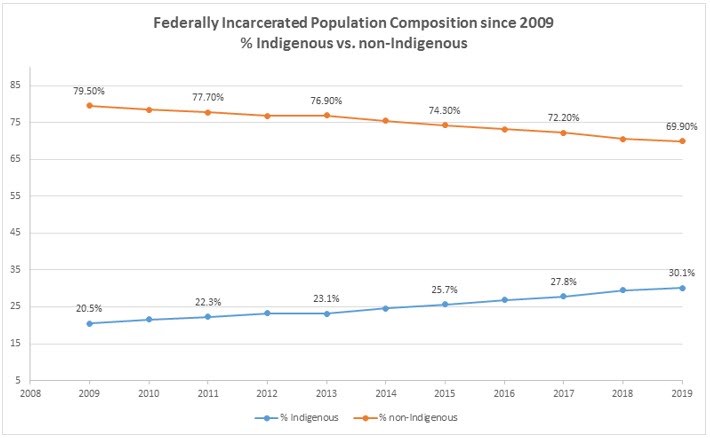Manitoba Keewatinowi Okimakanak (MKO), which represents 72,000 First Nations people in Northern Manitoba, is concerned about the rising numbers of Indigenous people being sentenced to prison.
In a Jan. 21 media release, Correctional Investigator of Canada Ivan Zinger said that Indigenous people account for more than 30 per cent of the federal inmate population, but only account for about five per cent of Canada’s population. The release said that incarceration rates are up five per cent over the last four years. It added that indigenous women account for 42 per cent of female inmates.
MKO Grand Chief Garrison Settee said Zinger’s statement is not surprising.
“The percentage of Indigenous inmates continues to grow as First Nations citizens face systemic discrimination from the day they are born,” he said. “We call on the government of Canada to take meaningful action on a number of issues now to reduce the overrepresentation of Indigenous peoples that is occurring within our justice system.”
In the MKO statement, Settee encouraged leaders to work with his organization to implement a “culturally responsive” method for implementing the “diverse healing needs” of First Nations. “There is a need for a comprehensive review,” he explained. “To overhaul restorative justice policies and programs in Northern Manitoba to impact and prevent recidivism and the incarceration rates of MKO citizens.”
MKO believes that restorative justice programming – “a community and victim-centred sentencing philosophy that emphasizes offender accountability and responsibility through negotiated restitution” – is appropriate for less-serious offences.
Zinger asked Correctional Service of Canada to carry its share of the responsibility, and stated it needs to make “dramatic changes” to reduce readmissions and returns to custody – to better prepare Indigenous offenders to meet earliest parole eligibility dates, and more safely return Indigenous offenders to their home communities.
“First Nations in Manitoba absolutely need to see action on this matter,” said Grand Chief Settee. “I want to thank Mr. Zinger for calling it like it is, which is a most persistent and pressing human rights issue, and nothing short of a national travesty.”




